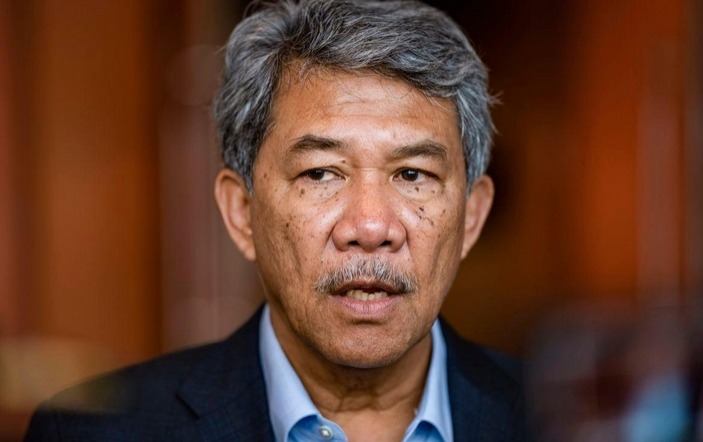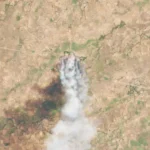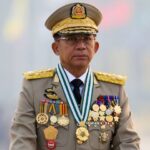
🌏 ASEAN to Decide on Myanmar Election Observers in 2025
KUALA LUMPUR — The Association of Southeast Asian Nations (ASEAN) will make a collective decision on whether to send election observers to Myanmar’s upcoming polls, according to Malaysia’s Foreign Minister Datuk Seri Mohamad Hasan.
Mohamad reaffirmed that no individual member state can unilaterally decide on Myanmar’s election participation or observation mission. The matter, he said, will be brought before the ASEAN Foreign Ministers’ Meeting (AMM) for a regional consensus.
“We will not decide unilaterally; this is ASEAN,” he emphasized, underscoring the principle of collective diplomacy that guides the bloc’s internal decisions.
🏛️ Malaysia’s Position: Support Free and Fair Elections
When asked whether Malaysia would send a delegation of election observers, the Foreign Minister cautioned against making premature judgments. He suggested that ASEAN’s unity should remain intact and that Myanmar’s political process must be credible to regain the region’s trust.
“Myanmar must conduct its elections freely, fairly, transparently, and credibly,” Mohamad said earlier on October 9.
He highlighted that inclusivity — ensuring the participation of all political parties and ethnic stakeholders — is fundamental to any legitimate election in Myanmar.
🤝 Engagement with Myanmar’s Junta Leadership
During his working visit to Nay Pyi Taw, Mohamad met with key figures in the State Administration Council (SAC), including Senior General Min Aung Hlaing, the junta’s chairman and acting president.
He also held talks with Prime Minister and Minister for National Planning U Nyo Saw, and Foreign Minister U Than Swe.
The discussions centered on Myanmar’s roadmap toward holding elections, the prospects for political dialogue with opposition forces, and the implementation of ASEAN’s Five-Point Consensus — the framework agreed upon in 2021 to restore peace and stability.
⚠️ Myanmar’s Ongoing Political and Humanitarian Crisis
Myanmar has remained in turmoil since February 1, 2021, when the military overthrew the democratically elected government led by the National League for Democracy (NLD).
The coup plunged the country into widespread civil unrest, economic collapse, and a protracted humanitarian crisis. Armed conflict between the Tatmadaw (military) and various ethnic resistance forces has displaced millions, while humanitarian access remains severely restricted.
Despite international condemnation, the junta continues to plan for elections aimed at legitimizing its rule. Many observers, however, question whether such elections can be genuinely free or inclusive under ongoing conflict conditions.
🕊️ ASEAN’s Five-Point Consensus and Diplomatic Challenges
ASEAN adopted its Five-Point Consensus in April 2021, urging the Myanmar military to:
Immediately end violence.
Begin constructive dialogue among all parties.
Allow humanitarian assistance through ASEAN channels.
Appoint a special envoy to facilitate mediation.
Permit the envoy to visit Myanmar and meet all stakeholders.
However, implementation has stalled due to limited cooperation from the junta and disagreements among ASEAN members on how firmly to respond. Some, including Malaysia, Indonesia, and Singapore, advocate for a principled, human-rights-based approach, while others prefer quiet diplomacy.
🔍 Elections Under Scrutiny
The planned elections have drawn skepticism from both regional and global communities. Critics argue that any election conducted under military supervision would lack credibility, especially while political prisoners — including Aung San Suu Kyi — remain detained.
Human rights organizations have warned that observer missions must maintain independence and not be used to validate a flawed process.
ASEAN, therefore, faces a delicate balancing act: engaging with Myanmar to encourage reform while avoiding endorsement of an illegitimate election.
🌐 The Importance of Collective ASEAN Unity
Malaysia’s insistence on collective decision-making reflects ASEAN’s longstanding principle of non-interference and consensus-based diplomacy. Yet this same principle has often limited the bloc’s ability to respond swiftly to crises.
By bringing the matter before the ASEAN Foreign Ministers’ Meeting, Mohamad seeks to align the bloc’s stance, ensuring that no member undermines regional unity by acting alone.
A unified ASEAN response could send a powerful message that the bloc remains committed to regional stability, human rights, and the restoration of democracy in Myanmar.
💬 Regional and International Reactions
Neighboring countries such as Thailand and Indonesia have expressed cautious optimism, calling for inclusive dialogue between the junta and opposition groups.
The United Nations and European Union have reiterated their positions that elections held under ongoing repression cannot be recognized as legitimate.
Meanwhile, the National Unity Government (NUG) — Myanmar’s government-in-exile — has dismissed the junta’s election plan as a sham, asserting that genuine democracy cannot exist without the participation of the people’s elected leaders.
🧭 The Road Ahead
As ASEAN deliberates, Myanmar’s internal divisions continue to deepen. Analysts predict that even if elections take place, international recognition will depend on transparency and independent observation.
Malaysia’s call for ASEAN consensus could set a precedent for future regional diplomacy: rather than reacting individually, member states may begin to act collectively when democratic norms are at stake.
For Myanmar, the outcome of these discussions could shape its diplomatic future — either further isolation or a cautious path toward regional reintegration.
❓ FAQ — Myanmar Election Observers and ASEAN’s Role
Q1. What is ASEAN’s official stance on Myanmar’s election observers?
ASEAN has not yet finalized its position. The decision will be made collectively at the ASEAN Foreign Ministers’ Meeting, following Malaysia’s call for regional consensus.
Q2. Why is Malaysia against unilateral decisions?
Malaysia believes that unilateral decisions could weaken ASEAN unity. The bloc’s strength lies in acting together, not independently.
Q3. Will ASEAN send observers to Myanmar’s elections?
As of now, it is unlikely. Malaysia’s foreign minister suggested ASEAN may advise against sending observers due to ongoing instability and the lack of credible democratic conditions.
Q4. What is the Five-Point Consensus?
It is ASEAN’s roadmap adopted in 2021 to address Myanmar’s crisis — calling for an end to violence, national dialogue, humanitarian aid, and mediation by a special envoy.
Q5. Why are Myanmar’s elections controversial?
Because they are being organized by the military junta while major opposition leaders are imprisoned or banned, casting doubt on the election’s legitimacy and inclusivity.
Related posts:
 U.S. Identifies Myanmar and Other Nations in Annual Drug Report
U.S. Identifies Myanmar and Other Nations in Annual Drug Report
 Inle Lake Buddhist Festival in Myanmar | Tradition & Renewal
Inle Lake Buddhist Festival in Myanmar | Tradition & Renewal
 Myanmar Military Paraglider Strike Kills Dozens
Myanmar Military Paraglider Strike Kills Dozens
 Myanmar Junta signs $3m lobbying deal to rebuild U.S. ties
Myanmar Junta signs $3m lobbying deal to rebuild U.S. ties
 Thailand Extradites Shwe Kokko Tycoon She Zhijiang to China
Thailand Extradites Shwe Kokko Tycoon She Zhijiang to China
 Starlink Fuels Myanmar Scam Networks, U.S. Demands Geoblock
Starlink Fuels Myanmar Scam Networks, U.S. Demands Geoblock
